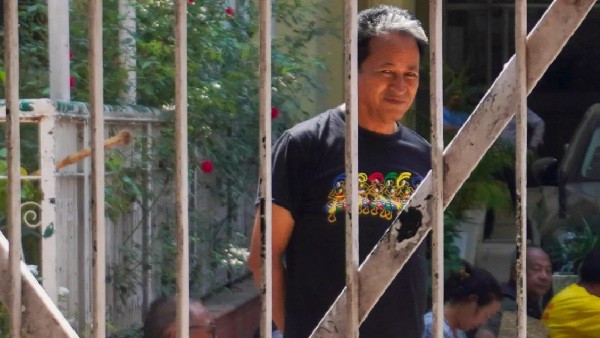
Renowned climate activist and education reformer Sonam Wangchuk has been arrested under the stringent National Security Act (NSA) following violent protests in Ladakh demanding statehood and constitutional safeguards. He has been transferred to Jodhpur Central Jail in Rajasthan, where he is reportedly under round-the-clock surveillance.
The arrest came two days after clashes in Leh left four dead and nearly 100 injured. Protesters, largely youth-led, torched government buildings including the BJP office and the Leh Hill Council premises. Authorities responded with curfew-like restrictions and a complete mobile internet shutdown across the district.
Detention Sparks Outrage
Wangchuk was taken into custody from his village in Uleytokpo by a police team led by Ladakh Police chief SD Singh Jamwal. His wife, Gitanjali Angmo, condemned the arrest, alleging their home was ransacked and Wangchuk was treated “like a criminal without trial.” She accused the government of spreading “false narratives” to tarnish his image.
The NSA allows detention without trial for up to 12 months, and Wangchuk’s supporters argue that his arrest is politically motivated. Opposition leaders including Omar Abdullah and Mehbooba Mufti have called the move “deeply disturbing” and a “witch-hunt” against peaceful dissent.
A Voice for Ladakh Silenced?
Wangchuk has been a leading figure in the five-year-long agitation for Ladakh’s statehood and inclusion under the Sixth Schedule of the Constitution. He recently concluded a 35-day hunger strike and was scheduled to address a virtual press briefing when arrested.
The Union Home Ministry has also revoked the FCRA license of SECMOL, Wangchuk’s NGO, citing alleged financial irregularities. The government blames him for inciting the violence, referencing his speeches that allegedly drew parallels to the Arab Spring and Nepal’s Gen Z protests.
Wangchuk, however, denies all allegations. “To say it was instigated by me is to find a scapegoat rather than addressing the core of the problem,” he said before his arrest.
As Ladakh reels from unrest and its most prominent activist sits in a high-security cell, questions loom over the region’s democratic space and the future of its autonomy movement.
